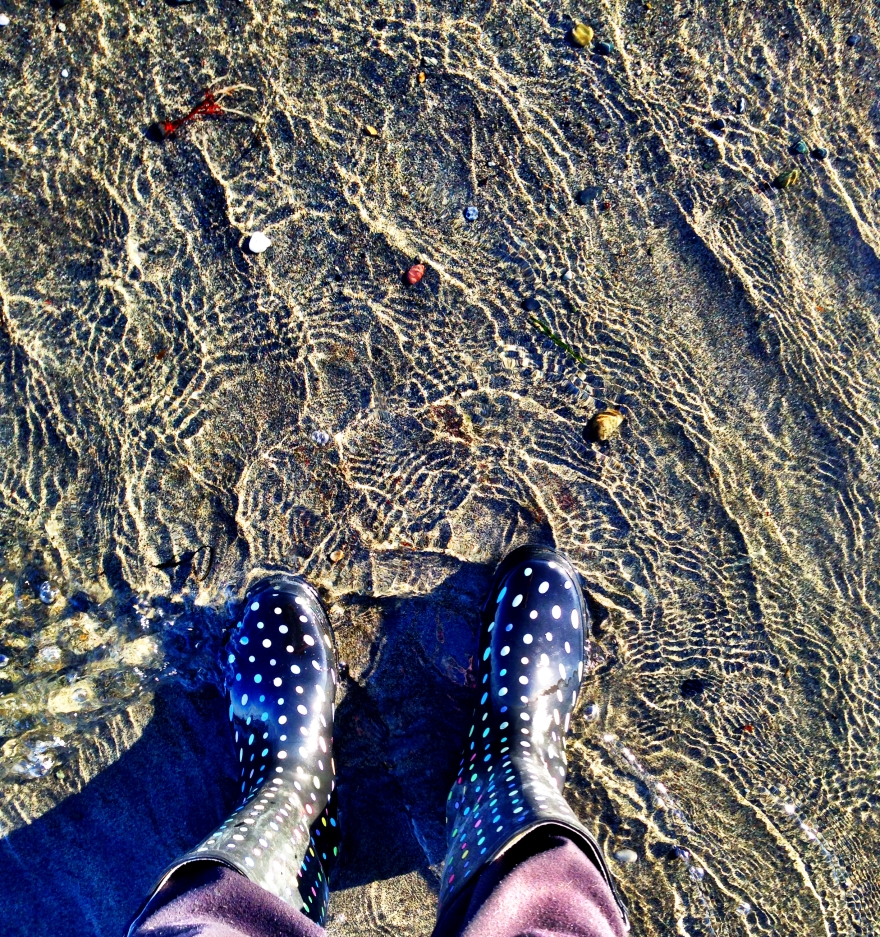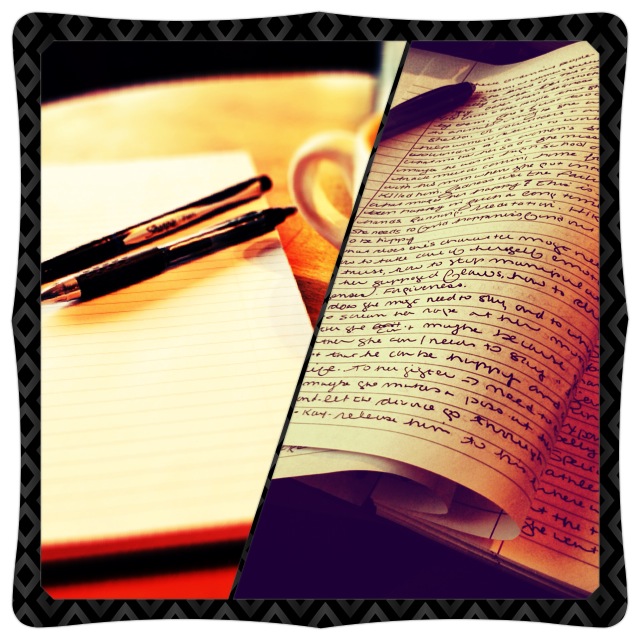The "I finished my novel" honeymoon recedes into memory like the scent of suntan lotion on last year's bikini. The road to publication stretches as far as the eye can see. And damn. That road ain't paved with yellow bricks. The lovely, optimistic and oft-asked, "When's your book coming out?!" is answered with a cheery "Someday, I hope!" while inside my heart stutters. The true answer is, "Well, you see, writing a book and publishing a book? It's the difference between graduating from university and getting a job. The first is never a guarantee of the second. You got the goods, and hopefully the goods are good. But before anyone buys your goods, you must do all the hard work of selling them."
First, generous strangers and writing buddies dissect your pounds of literary flesh.. You revise, then pay a story editor cash money to tear apart your work again. Revise again. Maybe find a few more willing, generous readers. Pay more cash money for copy editing and proofreading. Only then do you release it to the clutches of agents and publishers who, in all likelihood, will send you a rejection six months later.
Meanwhile, you agonize over the traditional vs. self-publishing routes, potentially spinning that roundabout without ever choosing an exit.
You despair of ever seeing your name in print again, because you've all but abandoned writing and submitting short form prose for this freaking-fracking what-am-I-doing-with-my-life?-Help-Me-Rhonda novel.
I anticipated this period of waiting, doubting, towel-throwing-in contemplation and immediately started work a second novel. It's given me needed distance from the first and released the pent-up desire to create new material after months spent in revision mode. I'm six weeks and 60,000 words in—and finding the process more graceful the second time around. This writer is more confident, disciplined and determined.
The other day, I did a little something else to keep myself focused on my goals. Somethings else. First, I signed "Writer" to the occupation line on our tax return. Go, me.
Then I did the other something else. I organized my creative life for business. It was my way of saying "Hey, not only is it okay to think that you may, someday, make an income as a writer, you'd be hella smart to start organizing your writer's financial life now."
The IRS says I have to make money from my writing 3 out of 5 years to be considered a professional writer (versus writing as a hobby). But there is more to convincing the Taxman that Julie Christine Johnson, Writer is a legitimate Lemonade Stand.
As a writer residing in Washington state, I am a sole proprietorship and make quarterly estimated tax payments. Or would, if I had, you know, any income. But I'm planning ahead. The IRS wants evidence that I regard myself as a professional. This means attending classes and workshops and participating in conferences to learn, network and pitch my work. A bank account. Computer and office supplies. Detailed receipts... Not a problem. I do details for a living.
The day my Lemonade Stand opened for business, the universe threw me a bone.
This is the just-published Up, Do: Flash Fiction by Women Writers, edited by Patricia Flaherty Pagan. It is a collection of thirty-three works of prose by writers from around the world. I'm gobsmacked to be included and honored that my story, Colorado, was one of six read at the Up, Do launch on February 24 in Houston, TX.
I haven't made a practice of flogging my writing for sale here. I don't know why, because it is my party and I can flog if I want to. Maybe it's that I love writing about writing so much, if I used my time here to say, "Buy Me! Buy Me!", I'd feel like a pop-up store in a suburban mall.
But this one is a bit different. Patricia Flaherty Pagan created this anthology to be a voice of protest at the paucity of women writers featured in leading literary journals, as evidenced by The Vida Count, an annual analysis of women's place in the literary arts. More than that, and true to Patricia's ultimate vision, Up, Do is celebration of the power of prose and the glorious voices of women.
In addition, five percent of the book's sales will be donated to the Houston Area Women's Center, B.A.R.C.C. of Boston, Sexual Assault Response Services of Southern Maine, and Day One Rape Crisis Services of Rhode Island. Contributions are also planned to the Disabled American Veterans Charitable Service Trust and the Wounded Warriors Project.
You, cherished reader, can order a copy from the publisher Spider Road Press or CreateSpace Marketplace or Amazon.com
My copy of Up, Do arrived in the mail the day I ran around town, making my Stand. My Lemonade Stand. My personal Stand that, despite my best efforts to doubt myself, I'll at least go through the motions of believing. Up, Do is a beautiful and important reminder that my words can help heal.




















